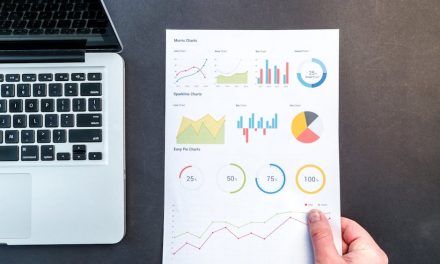Table of Contents
- Introduction
- Improved Data Accuracy and Accessibility
- Streamlined Performance Evaluation Processes
- Enhanced Employee Engagement and Development
- Real-time Performance Monitoring and Feedback
- Increased Efficiency in Goal Setting and Tracking
- Better Decision-making through Analytics and Reporting
- Q&A
- Conclusion
“Unlocking the power of data for optimized performance management with HRIS.”
Introduction
Introduction:
Human Resource Information Systems (HRIS) have revolutionized the way organizations manage their employees’ performance. By utilizing an HRIS platform for performance management, companies can streamline processes, improve communication, and make more data-driven decisions. In this article, we will explore the various benefits of using an HRIS platform for performance management.
Improved Data Accuracy and Accessibility
In today’s fast-paced business environment, organizations are constantly seeking ways to streamline their processes and improve efficiency. One area that has seen significant advancements in recent years is performance management. Traditionally, performance management involved manual processes, such as paper-based evaluations and spreadsheets. However, with the advent of technology, many organizations are now turning to Human Resource Information Systems (HRIS) platforms to manage their performance management processes.
One of the key benefits of using an HRIS platform for performance management is improved data accuracy. With manual processes, there is always a risk of human error, whether it be in data entry or calculations. This can lead to inaccuracies in performance evaluations, which can have a negative impact on employee morale and overall organizational performance. By using an HRIS platform, organizations can ensure that data is entered accurately and calculations are done automatically, reducing the risk of errors.
Furthermore, an HRIS platform also improves data accessibility. With manual processes, accessing performance data can be time-consuming and cumbersome. Employees and managers may have to sift through piles of paperwork or spreadsheets to find the information they need. This can lead to delays in decision-making and hinder the overall performance management process. By using an HRIS platform, organizations can centralize all performance data in one place, making it easily accessible to employees and managers. This not only saves time but also allows for more informed decision-making based on real-time data.
Another benefit of using an HRIS platform for performance management is the ability to track performance metrics more effectively. With manual processes, tracking performance metrics can be a challenge, as data is often scattered across different systems and formats. This can make it difficult to get a holistic view of employee performance and identify trends or patterns. By using an HRIS platform, organizations can track performance metrics in real-time and generate reports and dashboards that provide valuable insights into employee performance. This allows organizations to make data-driven decisions and identify areas for improvement more effectively.
Additionally, an HRIS platform can also help organizations align individual performance goals with organizational objectives. By setting clear performance goals and aligning them with the overall strategic goals of the organization, employees can see how their individual contributions impact the success of the organization. This not only motivates employees to perform at their best but also ensures that everyone is working towards a common goal. An HRIS platform can facilitate this alignment by providing a centralized platform for setting and tracking performance goals, as well as monitoring progress towards those goals.
In conclusion, using an HRIS platform for performance management offers numerous benefits, including improved data accuracy, accessibility, and tracking of performance metrics. By centralizing performance data, organizations can make more informed decisions and align individual performance goals with organizational objectives. As technology continues to advance, more organizations are likely to adopt HRIS platforms for their performance management processes to stay competitive in today’s fast-paced business environment.
Streamlined Performance Evaluation Processes

Performance management is a critical aspect of any organization’s success. It involves setting goals, providing feedback, and evaluating employee performance to ensure that individuals are meeting expectations and contributing to the overall success of the company. Traditionally, performance management has been a time-consuming and labor-intensive process, often involving manual paperwork and cumbersome spreadsheets. However, with the advent of Human Resource Information Systems (HRIS) platforms, organizations now have the opportunity to streamline their performance evaluation processes and reap a host of benefits.
One of the key benefits of using an HRIS platform for performance management is the ability to automate many of the tasks associated with the process. This includes setting goals, tracking progress, and providing feedback to employees. By automating these tasks, organizations can save time and resources, allowing HR professionals to focus on more strategic initiatives. Additionally, automation can help to reduce errors and ensure that evaluations are conducted consistently and fairly across the organization.
Another benefit of using an HRIS platform for performance management is the ability to track and analyze performance data in real-time. This can provide valuable insights into employee performance trends, strengths, and areas for improvement. By having access to this data, organizations can make more informed decisions about training and development opportunities, promotions, and succession planning. Additionally, real-time data can help to identify performance issues early on, allowing organizations to take proactive steps to address them before they become more serious.
In addition to automation and real-time data analysis, HRIS platforms can also help to improve communication and collaboration within the organization. Many platforms offer features such as goal-setting tools, feedback mechanisms, and performance dashboards that allow employees and managers to easily communicate and track progress towards goals. This can help to foster a culture of transparency and accountability, leading to increased employee engagement and motivation.
Furthermore, HRIS platforms can help to streamline the performance review process by providing a centralized repository for all performance-related information. This can make it easier for managers to access and review employee performance data, track progress towards goals, and provide feedback in a timely manner. Additionally, having all performance-related information in one place can help to ensure that evaluations are comprehensive and based on a complete picture of an employee’s performance.
Overall, using an HRIS platform for performance management can provide organizations with a host of benefits, including automation of tasks, real-time data analysis, improved communication and collaboration, and streamlined performance review processes. By leveraging the capabilities of an HRIS platform, organizations can enhance their performance management processes, leading to increased employee engagement, productivity, and ultimately, organizational success.
Enhanced Employee Engagement and Development
In today’s fast-paced business environment, organizations are constantly seeking ways to improve their performance management processes to enhance employee engagement and development. One effective solution that many companies are turning to is the use of Human Resource Information Systems (HRIS) platforms. These platforms offer a wide range of benefits that can help streamline performance management practices and ultimately drive better results for both employees and the organization as a whole.
One of the key benefits of using an HRIS platform for performance management is the ability to track and monitor employee performance in real-time. Traditional performance management processes often rely on annual or semi-annual reviews, which can be time-consuming and ineffective in providing timely feedback to employees. With an HRIS platform, managers can easily track employee performance on an ongoing basis, allowing for more frequent check-ins and feedback sessions. This real-time feedback can help employees understand where they stand in terms of their performance goals and make adjustments as needed to stay on track.
Another benefit of using an HRIS platform for performance management is the ability to set and track individual performance goals. These platforms allow managers to establish clear, measurable goals for each employee and track their progress towards achieving those goals. This can help employees stay focused and motivated, knowing exactly what is expected of them and how their performance will be evaluated. Additionally, the ability to track progress towards goals can help managers identify any potential roadblocks or areas where additional support may be needed to help employees succeed.
In addition to tracking performance goals, HRIS platforms also offer tools for employee development and training. These platforms can help managers identify areas where employees may need additional training or development opportunities to enhance their skills and capabilities. By providing employees with access to training resources and development programs, organizations can help employees grow and advance in their careers, ultimately leading to higher levels of engagement and job satisfaction.
Furthermore, HRIS platforms can help streamline the performance review process, making it more efficient and effective for both managers and employees. These platforms often include built-in templates and tools for conducting performance reviews, making it easier for managers to provide feedback and evaluate employee performance. Additionally, the ability to store performance data and feedback in a centralized system can help ensure consistency and fairness in the evaluation process, reducing the risk of bias or subjectivity.
Overall, using an HRIS platform for performance management can have a significant impact on employee engagement and development within an organization. By providing real-time feedback, setting and tracking performance goals, offering development opportunities, and streamlining the performance review process, these platforms can help organizations drive better results and create a more engaged and motivated workforce. As organizations continue to prioritize employee engagement and development, investing in an HRIS platform for performance management can be a valuable tool for achieving these goals.
Real-time Performance Monitoring and Feedback
In today’s fast-paced business environment, organizations are constantly seeking ways to improve their performance management processes. One tool that has gained popularity in recent years is the Human Resource Information System (HRIS) platform. This technology offers a wide range of benefits for organizations looking to streamline their performance management practices, including real-time performance monitoring and feedback.
One of the key advantages of using an HRIS platform for performance management is the ability to monitor employee performance in real-time. Traditional performance management systems often rely on annual or semi-annual reviews, which can be time-consuming and may not provide an accurate picture of an employee’s performance throughout the year. With an HRIS platform, managers can track employee performance on a day-to-day basis, allowing them to identify areas for improvement and provide timely feedback to employees.
Real-time performance monitoring also allows organizations to quickly address any issues that may arise. For example, if an employee is consistently missing deadlines or underperforming in a particular area, managers can intervene early on to provide support and guidance. This proactive approach can help prevent performance issues from escalating and ultimately improve overall employee productivity and engagement.
In addition to real-time monitoring, an HRIS platform also enables organizations to provide immediate feedback to employees. Instead of waiting for a formal review process, managers can provide feedback on an ongoing basis, helping employees to understand their strengths and areas for improvement. This continuous feedback loop can lead to increased employee satisfaction and motivation, as employees feel supported and valued by their managers.
Furthermore, real-time feedback can help employees to make adjustments to their performance more quickly. Instead of waiting months for feedback, employees can receive guidance and support in real-time, allowing them to address any issues and improve their performance in a timely manner. This can lead to increased productivity and efficiency within the organization, as employees are able to make changes and improvements as soon as they are identified.
Another benefit of using an HRIS platform for performance management is the ability to track and analyze performance data over time. By collecting and analyzing data on employee performance, organizations can identify trends and patterns that may impact overall performance. This data-driven approach can help organizations to make more informed decisions about performance management, such as identifying training needs or adjusting performance goals.
Overall, the use of an HRIS platform for performance management offers a wide range of benefits for organizations looking to improve their performance management practices. From real-time performance monitoring and feedback to data-driven decision-making, this technology can help organizations to streamline their performance management processes and ultimately improve employee productivity and engagement. By leveraging the capabilities of an HRIS platform, organizations can create a more efficient and effective performance management system that benefits both employees and the organization as a whole.
Increased Efficiency in Goal Setting and Tracking
Performance management is a critical aspect of any organization’s success. It involves setting goals, tracking progress, providing feedback, and evaluating performance to ensure that employees are meeting expectations and contributing to the overall success of the company. In recent years, many organizations have turned to Human Resource Information Systems (HRIS) platforms to streamline their performance management processes and improve efficiency.
One of the key benefits of using an HRIS platform for performance management is the increased efficiency in goal setting and tracking. Traditionally, goal setting and tracking have been done manually, with managers and employees having to keep track of goals and progress using spreadsheets or other tools. This can be time-consuming and prone to errors, leading to confusion and frustration for both managers and employees.
By using an HRIS platform, organizations can automate the goal-setting process, making it easier for managers to set clear, measurable goals for their employees and track progress towards those goals. Employees can also easily access their goals and track their own progress, allowing for greater transparency and accountability. This not only saves time and reduces errors but also helps to ensure that goals are aligned with the overall objectives of the organization.
Another benefit of using an HRIS platform for performance management is the ability to provide real-time feedback. Traditional performance management processes often involve annual or semi-annual performance reviews, which can be time-consuming and ineffective. With an HRIS platform, managers can provide feedback to employees on an ongoing basis, allowing for more timely and relevant feedback that can help employees improve their performance and achieve their goals.
In addition to increased efficiency in goal setting and tracking, using an HRIS platform for performance management can also help organizations to identify and address performance issues more effectively. By tracking performance data over time, organizations can identify trends and patterns that may indicate areas where employees are struggling or where additional support may be needed. This can help managers to intervene early and provide the necessary support to help employees improve their performance.
Furthermore, an HRIS platform can also help to improve employee engagement and motivation. By providing employees with access to their performance data and feedback, organizations can empower employees to take ownership of their performance and development. This can help to increase motivation and engagement, leading to higher levels of performance and productivity.
Overall, using an HRIS platform for performance management offers a wide range of benefits, including increased efficiency in goal setting and tracking, real-time feedback, improved performance management, and increased employee engagement. By leveraging the power of technology, organizations can streamline their performance management processes and create a more effective and efficient performance management system that benefits both employees and the organization as a whole.
Better Decision-making through Analytics and Reporting
In today’s fast-paced business environment, organizations are constantly seeking ways to improve their performance management processes. One tool that has gained popularity in recent years is the Human Resource Information System (HRIS) platform. This technology offers a wide range of benefits for organizations looking to streamline their performance management practices and make more informed decisions.
One of the key advantages of using an HRIS platform for performance management is the ability to access real-time analytics and reporting. By centralizing all employee data in one system, HR professionals can easily track key performance indicators, such as employee productivity, engagement, and turnover rates. This data can then be used to identify trends, patterns, and areas for improvement within the organization.
With the help of advanced analytics tools, HR professionals can generate customized reports that provide valuable insights into employee performance. These reports can help managers identify top performers, track progress towards goals, and pinpoint areas where additional training or support may be needed. By leveraging data-driven insights, organizations can make more informed decisions about performance management strategies and allocate resources more effectively.
Furthermore, the use of an HRIS platform for performance management can help organizations identify and address potential issues before they escalate. By monitoring key performance indicators on a regular basis, HR professionals can quickly identify underperforming employees, address performance issues, and provide timely feedback and coaching. This proactive approach can help prevent performance problems from impacting overall organizational performance and employee morale.
In addition to improving decision-making through analytics and reporting, an HRIS platform can also streamline the performance management process. By automating routine tasks, such as performance evaluations, goal setting, and feedback collection, HR professionals can save time and resources that can be allocated to more strategic initiatives. This automation can also help ensure consistency and fairness in the performance management process, reducing the risk of bias or subjectivity.
Another benefit of using an HRIS platform for performance management is the ability to enhance employee engagement and satisfaction. By providing employees with access to their performance data, goals, and feedback in real-time, organizations can empower employees to take ownership of their performance and development. This transparency can help foster a culture of continuous feedback and improvement, leading to higher levels of employee engagement and satisfaction.
Overall, the use of an HRIS platform for performance management offers numerous benefits for organizations looking to improve their decision-making processes. By leveraging real-time analytics and reporting, organizations can gain valuable insights into employee performance, identify areas for improvement, and make more informed decisions. Additionally, the automation of routine tasks can streamline the performance management process, while enhancing employee engagement and satisfaction. As organizations continue to prioritize performance management as a key driver of success, the use of an HRIS platform will become increasingly essential in helping organizations achieve their performance management goals.
Q&A
1. What are some benefits of using an HRIS platform for performance management?
– Increased efficiency and accuracy in tracking employee performance data.
– Improved communication and collaboration between managers and employees.
– Enhanced ability to identify and address performance issues in a timely manner.
2. How can an HRIS platform help with setting and tracking performance goals?
– HRIS platforms can provide a centralized system for setting and tracking performance goals.
– Managers can easily monitor progress towards goals and provide feedback to employees.
– Automated reminders and notifications can help keep employees on track with their goals.
3. What role does data analytics play in performance management with an HRIS platform?
– HRIS platforms can analyze performance data to identify trends and patterns.
– Data analytics can help HR professionals make informed decisions about performance management strategies.
– Predictive analytics can be used to forecast future performance trends and make proactive adjustments.
4. How can an HRIS platform improve the performance review process?
– HRIS platforms can streamline the performance review process by providing templates and automated workflows.
– Managers can easily access performance data and feedback to support their evaluations.
– Real-time feedback and coaching features can enhance the quality of performance reviews.
5. How does an HRIS platform support employee development and training?
– HRIS platforms can track employee skills, competencies, and training needs.
– Managers can use this information to create personalized development plans for employees.
– Integration with learning management systems can facilitate access to training resources and courses.
6. What are some challenges to consider when implementing an HRIS platform for performance management?
– Data security and privacy concerns related to storing sensitive employee information.
– Ensuring proper training and support for employees and managers using the platform.
– Integrating the HRIS platform with other systems and processes within the organization.
Conclusion
In conclusion, utilizing an HRIS platform for performance management can provide numerous benefits for organizations, including increased efficiency, improved data accuracy, enhanced employee engagement, and better decision-making. By streamlining processes and centralizing data, HRIS platforms can help organizations effectively manage and develop their workforce, ultimately leading to improved overall performance and success.




